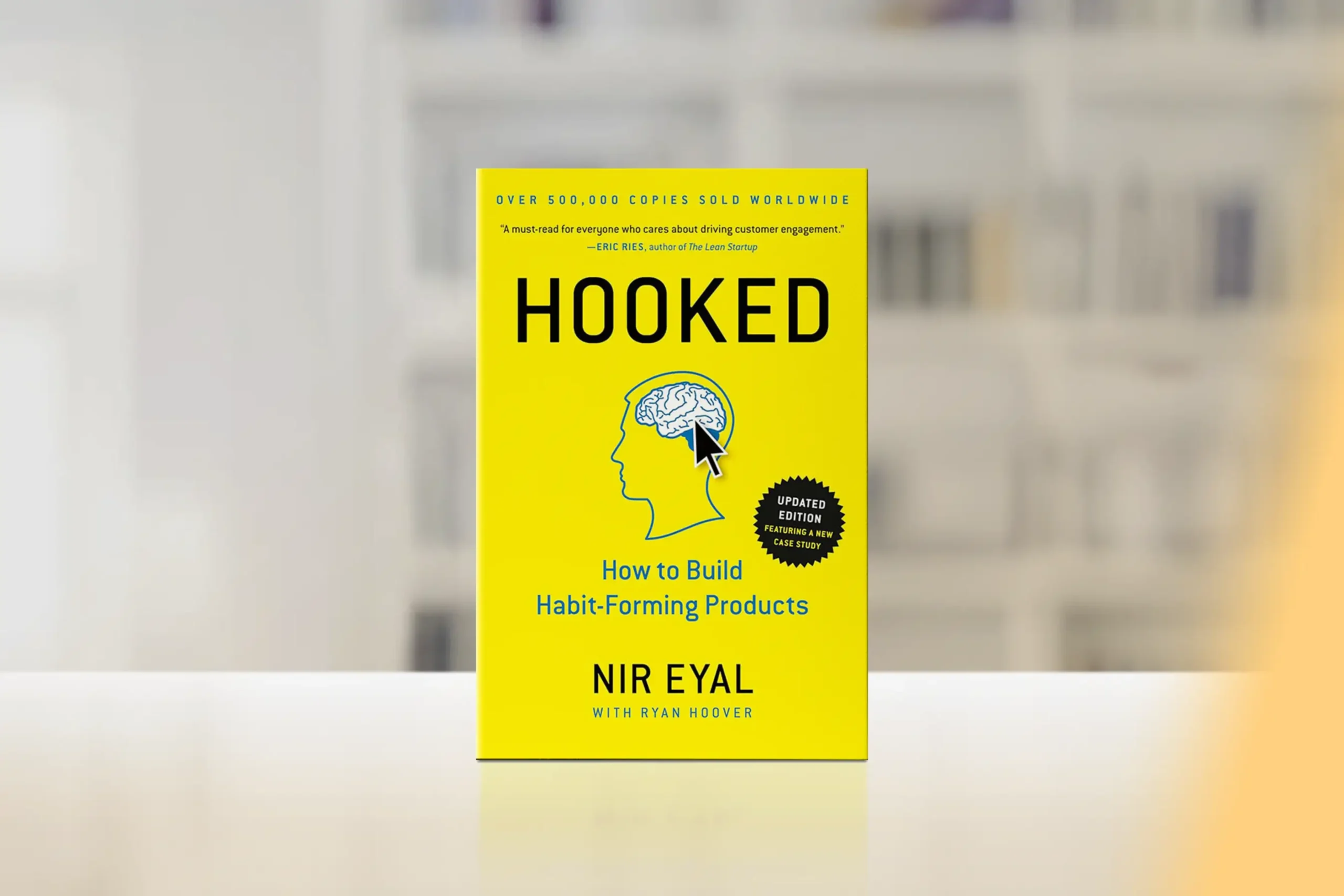The future of work is rapidly evolving, driven by technological advancements, globalization, and shifting demographics. The pace of change is only set to accelerate with AI.
Inside this article:
1. Your Career Revolution
The professional landscape is undergoing a fundamental transformation that requires a complete rethinking of how we approach our career journeys.
The McKinsey Global Institute projects that by 2030, as many as 375 million workers globally may need to switch occupational categories as digitization, automation, and advances in artificial intelligence disrupt the world of work. To thrive in this dynamic landscape, professionals must stay informed about the key trends shaping the future of work and proactively adapt their skills and strategies.
The Pace of Change
Remember the last time you used a paper map to navigate a road trip? These once-essential skills have been rendered obsolete in just a single generation. The pace of change in today’s workplace makes those transitions look glacial by comparison.
The Personal Impact
Consider a team that was informed their roles would be automated within six months. That pit-in-stomach feeling, wondering: would my skills still matter? Perhaps you’ve felt that same uncertainty about your own career path.
What the Experts Say
- Klaus Schwab: “We stand on the brink of a technological revolution that will fundamentally alter the way we live, work, and relate to one another.”
- Yuval Noah Harari: The most crucial skill isn’t mastering any particular vocation, but developing the ability to constantly learn and reinvent yourself.
The Adaptation Advantage
You can almost feel the difference between:
- The anxiety of trying to predict exactly which skills will matter in five years
- The confidence that comes from knowing you can adapt to whatever emerges
The workers who will thrive aren’t necessarily the most technically skilled today—they’re the ones who can evolve with tomorrow’s demands.
Action Step: Start tracking emerging trends in your industry by setting up Google Alerts for key technologies and subscribing to at least one forward-thinking industry publication.
2. The Rise of Remote Work
Remote and hybrid work have become standard operating models in the global workplace, creating new opportunities and challenges that continue to reshape professional norms and expectations.
The Evolution of Distributed Work
The pandemic-accelerated shift to remote work has matured into established working patterns. Organizations have moved beyond emergency adaptations to strategic approaches that balance flexibility, productivity, and connection. The question is no longer whether remote work works, but how to optimize it for different roles, teams, and objectives.
Remote Work by the Numbers
- 76% of knowledge workers now have flexibility in where they work
- Nearly 98% of workers want some form of remote work option going forward
- Companies with flexible work policies report 22% lower employee turnover and 35% higher productivity
- 70% of managers have team members who work remotely at least part-time
Three Emerging Challenges
- Building Connection in Distributed Teams: As organizations commit to long-term hybrid models, the focus has shifted to creating meaningful connection and belonging across distributed teams. The most successful professionals develop rituals and practices that foster authentic relationships despite physical distance.
- Managing Digital Boundaries: With work and home permanently overlapping for many, establishing healthy boundaries has become essential. High performers distinguish themselves by creating clear delineations between work and personal time, even when both happen in the same physical space.
- Leveraging Global Talent Networks: Organizations increasingly draw from global talent pools, creating teams that span continents and time zones. This expanded access to talent creates both competitive pressure and unprecedented opportunity for professionals who can effectively navigate cultural differences and asynchronous collaboration.
Quick Win: Build your remote collaboration muscles by volunteering for a cross-functional or international project that requires virtual coordination and diverse communication styles.
3. Continuous Learning
In today’s rapidly evolving workplace, learning is no longer a finite phase that ends with formal education but rather a career-long commitment that determines professional relevance and growth.
The Common Misconception
“I don’t have time to learn new skills—I’m too busy doing my job.” This is a frequent refrain from professionals who don’t realize they’re making a critical mistake. Many have spent years becoming experts in platforms or technologies that eventually became obsolete, leaving them scrambling to catch up.
The Skills Gap Reality
- 50% of all employees will need reskilling by 2025
- The half-life of professional skills has dropped from 10-15 years to 5 years or less
- 85% of the jobs that will exist in 2030 haven’t been invented yet
Three Critical Mindset Shifts
- From Episodic to Continuous Learning: Rather than treating learning as something you did in school, successful professionals embed learning into their weekly routines.
- From Content Mastery to Learning Agility: More valuable than any specific knowledge is your ability to rapidly acquire new skills. This “meta-skill” of learning how to learn becomes the ultimate career insurance policy.
- From Prescribed Paths to Self-Directed Growth: Feel the difference between waiting for company-sponsored training versus proactively identifying emerging skills and finding resources to develop them.
Key Habit: Dedicate at least 3-5 hours per week to learning new skills, whether through online courses, podcasts during commutes, or reading industry publications during lunch breaks.
4. Breaking the One-Job Mindset
The traditional concept of a linear career with a single employer is rapidly becoming obsolete, replaced by a more fluid, diverse approach to professional growth and security.
Redefining Job Security
Many professionals are surprised by the reaction they receive when leaving “stable” corporate jobs to pursue portfolio careers. “But what about job security?” concerned family members ask. What they don’t yet understand is that diversity can actually create more stability than dependency on a single employer.
The Gig Revolution By Numbers
- 36% of US workers participate in the gig economy
- Freelance workforce growing 3x faster than the overall workforce
- Project-based work now spans traditional professions like law, healthcare, and finance
Three Career Paradigm Shifts
- From Job Titles to Skill Portfolios: Rather than defining yourself by a single role, successful professionals think in terms of transferable skills that can be applied across different contexts.
- From Employment to Employability: Job security no longer comes from any single position but from your ability to continuously attract opportunities. Can you feel the difference between depending on one employer versus knowing your skills are in demand across multiple channels?
- From Linear to Cyclical Career Paths: The new career trajectory often involves cycles of specialization, contribution, learning, and reinvention rather than a straight climb up the corporate ladder.
Practical Tool: Create a “skills inventory” document that tracks your transferable skills, accomplishments, and experiences that could apply across different roles and industries.
5. The Impact of AI
Artificial intelligence (AI) is rapidly transforming the workplace, eliminating certain types of work while simultaneously creating new opportunities for those who understand how to collaborate with these powerful tools.
The AI Awakening
Many professionals’ first encounters with workplace AI leave them with conflicting emotions. When teams implement AI systems that can analyze documents in seconds—work that previously took staff hours to complete—the technology can be both impressive and concerning in its implications.
AI Impact by the Numbers
- AI could automate up to 45% of current work activities
- This represents approximately $16 trillion in wages
- Only about 5% of jobs can be fully automated with current technology
- AI will likely create more jobs than it eliminates, but they’ll be different jobs
Key Mindset Shifts for the AI Era
- From Replacement Anxiety to Augmentation Opportunity: Focus not on which jobs AI might take, but on how you can leverage AI to enhance your capabilities and take on more complex, valuable work.
- From Routine to Uniquely Human Work: As AI handles routine tasks, human value increasingly centers on creativity, emotional intelligence, ethical judgment, and complex problem-solving.
Many initially approach AI with trepidation, but after learning to collaborate with these systems rather than compete against them, productivity typically increases dramatically. The key is recognizing which aspects of work benefit from human judgment versus which can be enhanced through technological assistance.
Smart Strategy: Experiment with at least one AI tool in your field (such as ChatGPT, Claude, Midjourney, Runway, Eleven Labs, Suno, Jasper, or industry-specific AI software) to identify opportunities where you can automate or enhance tasks.
6. The Demand for Soft Skills
As automation and AI increasingly handle technical and routine tasks, distinctly human capabilities like creativity, empathy, and complex problem-solving are becoming the most valuable professional assets.
The Hiring Reality
“Learn to code” has become common career advice, but this guidance is rapidly becoming outdated. AI is now capable of generating code, debugging, and even designing applications—tasks that once required human programmers. What’s becoming clear is that technical skills alone are increasingly vulnerable to automation, while the uniquely human abilities to understand context, communicate effectively, and provide creative direction are now the truly scarce resources.
The Soft Skills Advantage
As work becomes more technological, human skills become more valuable, not less. The World Economic Forum’s Future of Jobs Report 2025 highlights that the most in-demand emerging skills include:
- Creativity and innovation
- Analytical thinking
- Resilience and flexibility
- Persuasion and negotiation
- Collaboration and teamwork
- Emotional intelligence
- Complex problem-solving
Key Strategic Shifts
- From Technical Expertise to Balanced Capabilities: The most valuable professionals combine technological literacy with the ability to communicate effectively, work collaboratively, and adapt to changing conditions.
- From IQ to EQ (and Beyond): As routine cognitive work is increasingly automated, emotional intelligence—the ability to understand and manage emotions in yourself and others—becomes increasingly valuable.
Growth Opportunity: Develop your emotional intelligence by practicing active listening, seeking feedback on your communication style, and reading books like “Working with Emotional Intelligence.” or reading one of our articles – Emotional Intelligence: Understanding and Mastering the Key to Human Interaction
7. Skills Upgrade Plan
Professionals who have successfully navigated career disruption often use a structured approach to transition from anxiety to opportunity. Here’s a framework that has proven effective for many:
Days 01-30: Foundation Building
- Digital Collaboration: Master remote work tools and virtual communication techniques
- Learning System: Identify emerging skills and create a weekly learning schedule
- Professional Visibility: Update your online presence and join relevant communities
- Future-Skills Inventory: Assess which of your skills are automation-resistant vs. vulnerable
Days 31-60: Skill Development
- Self-Management: Implement a productivity system for autonomous work
- Strategic Networking: Connect with forward-thinking professionals about industry trends
- AI Partnership: Learn to collaborate with AI tools to enhance your productivity
- Human Skills: Practice emotional intelligence, creativity, and complex problem-solving
Days 61-90: Application & Planning
- Real-World Practice: Apply new skills to actual projects and document results
- Cross-Functional Work: Volunteer for projects requiring diverse perspectives
- Reflection & Synthesis: Evaluate your learning journey and effectiveness
- Forward Planning: Create your next 90-day development plan with escalating goals
Success Metric: Measure your progress by creating before-and-after snapshots of your capabilities and document specific examples of how your new skills have enhanced your work performance.
Your Future-Ready Career
Preparing for the future of work isn’t about predicting changes, but developing adaptability and skills that enable you to thrive amid transformation.
- The Transformation Opportunity: Develop capabilities in virtual collaboration, continuous learning, portfolio thinking, AI partnership, and human skills. Position yourself to capitalize on change rather than be disrupted by it.
- From Disruption to Growth: Consider professionals who’ve pivoted after job automation. Approach change as opportunity rather than threat.
- The Mindset Difference: Replace anxiety about predicting the future with confidence in your adaptability.Transform career uncertainty into possibility through this mental shift.
The professional journey is now an evolving portfolio of experiences, skills, and relationships. Your greatest asset is your capacity to learn, grow, and reinvent yourself.
What’s your next step in future-proofing your career?
Related Reading:
- Growth Mindset: Unlocking Your Potential Through Learning
- Career Change Superpowers: Harnessing Your Past Experience in a New Professional Context
- The Importance of Continuous Learning in Career Development
- Emotional Intelligence: The Key to Personal and Professional Growth
- Emotional Resilience: Navigating the Psychological Challenges of Career Change





